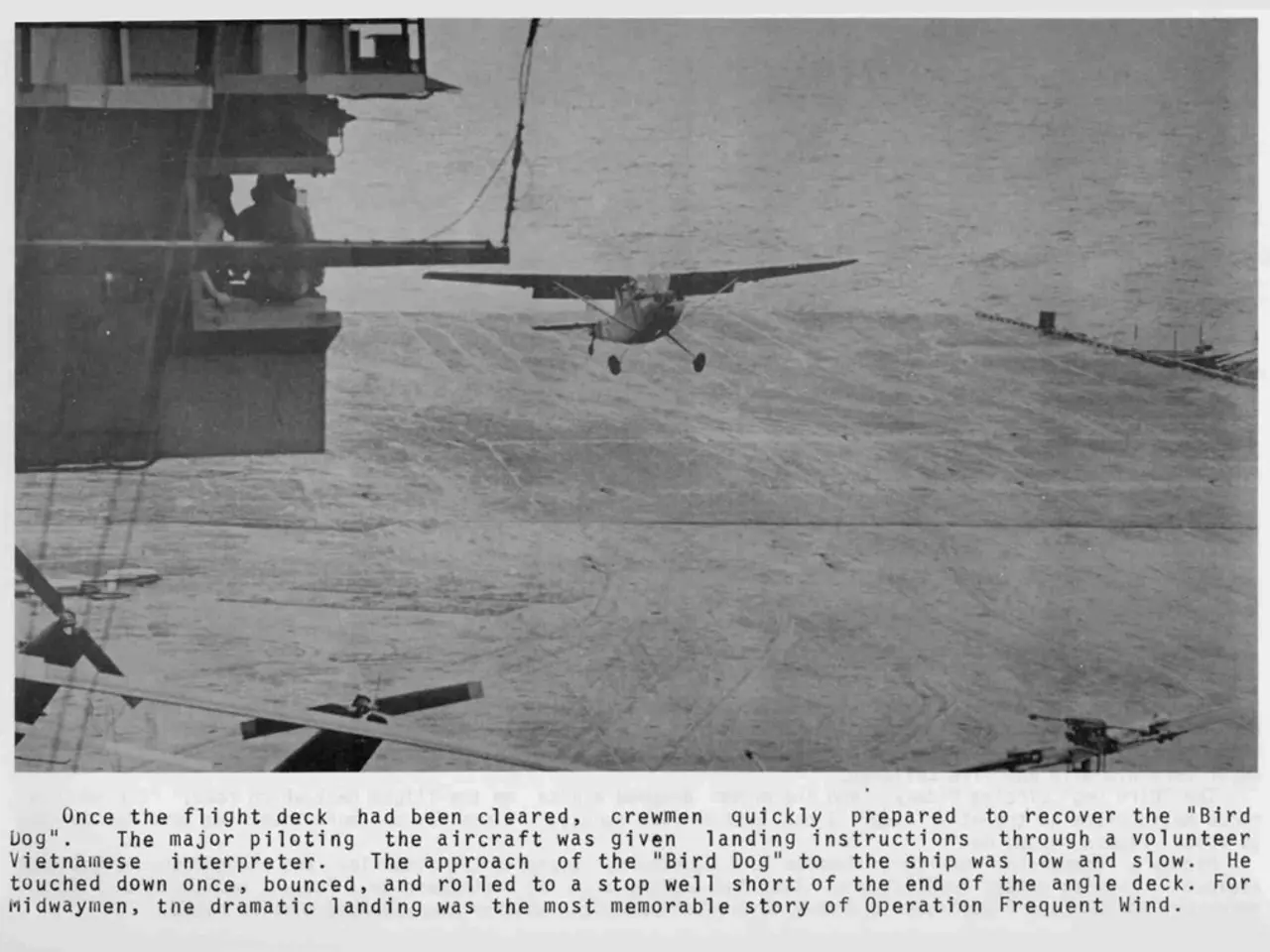Aid flights from Germany to Gaza have commenced
Germany Aids Gaza Strip Amidst Challenges
Germany has launched an aid operation for the people of Gaza Strip, dropping 13.8 tons of food and medical supplies by air. This comes as the region faces a potential famine, according to UN figures, and chaotic scenes occur due to desperate populations looting aid cargoes before they reach warehouses.
The German Armed Forces have been dropping urgently needed supplies over the Gaza Strip, with Defense Minister Boris Pistorius emphasizing that the aid flights can only bring the most necessary things to the people. However, airdropping aid to Gaza faces significant challenges and is generally considered dangerous and ineffective compared to land deliveries.
Dangerous and Ineffective Aid Drops
Airdrops can be hazardous as supplies may land in inaccessible or hostile areas, posing risks to civilians trying to retrieve them. Such operations lack precision and can inadvertently cause injuries or become targets in conflict zones. Experts argue that airdrops do not sufficiently address Gaza’s large-scale hunger crisis, as they do not guarantee sustained or adequate food supply to the 2 million people and fail to replace systematic distribution mechanisms.
Land Deliveries: A More Viable Solution
While land deliveries also encounter severe obstacles, including militarized control, access restrictions, and violent interference, they offer better potential for sustained relief if political and security barriers are removed. Israel controls entry points and has imposed tight restrictions, often allowing only limited convoys under highly controlled systems. There are documented instances where Palestinians seeking aid sites have been attacked or killed by Israeli forces, severely hampering safe aid access.
Humanitarian aid via land routes is often politicized and manipulated, leading to deliberate obstruction and weaponization of food, undermining genuine relief efforts and exacerbating starvation. Despite these challenges, land deliveries can provide ongoing aid if access is allowed.
The Way Forward
Experts advocate that the enduring solution requires Israel to allow safe, unrestricted, and sufficient land-based aid deliveries regardless of ceasefire status, rather than relying on dangerous airdrops. A ceasefire remains essential to fully prevent humanitarian suffering in Gaza. The core issue is political and military obstruction rather than logistical inefficiency of aid delivery methods.
In addition to the airdrops, Germany is also participating in the aid operation with two aircraft and is financing a field hospital of the Maltese in Gaza City. Moreover, Germany has announced an additional five million euros in financial aid for the UN World Food Program WFP to support bakeries and soup kitchens in Gaza. Since the beginning of the Gaza war in October 2023, German humanitarian aid to the Palestinian territories has amounted to over 330 million euros, with more than 95% going to the Gaza Strip.
Despite the challenges, Germany remains committed to providing aid to the people of Gaza, recognizing the urgent need for sustained and effective relief efforts.
- Aid, beyond the airdrops, should be delivered via land routes, for it offers better potential for sustained relief and can address Gaza’s large-scale hunger crisis more effectively.
- The enduring solution to the humanitarian crisis in Gaza requires Israel to allow safe, unrestricted, and sufficient land-based aid deliveries, irrespective of ceasefire status, to ensure reliable and adequate food supplies.
- Mental-health support, nutrition guidance, and fitness-and-exercise programs may also be crucial factors in addressing the holistic health-and-wellness needs of the people of Gaza amidst constant conflicts and instability.
- Meanwhile, in parallel with the humanitarian crisis, politics and war-and-conflicts in Gaza must be addressed to ensure lasting peace and stability, thus allowing for improving the general-news situation and the overall quality of life for its citizens.




